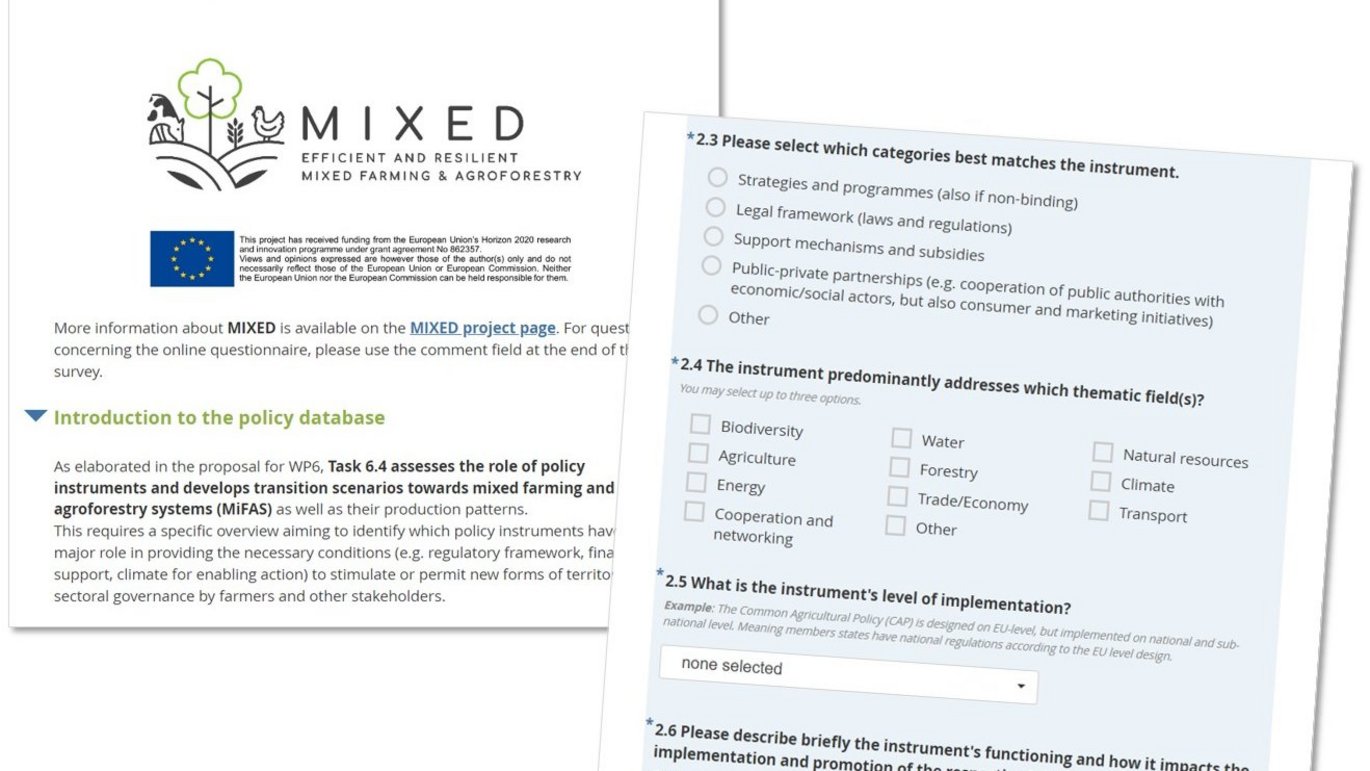Support mechanisms for mixed farming and agroforestry systems in the EU
The impacts and potentials of the multitude of diverse and complex mixed land use systems (MiFAS) in Europe, e.g. on sustainability and resilience, are under extensive investigations within MIXED. But how about the framework conditions in which the farms have to operate? Moreover, how could trade and politics support a transition to more mixed systems in Europe? MIXED also addresses these questions.

Initial results drawn from the networks show that negative or hindering factors are quickly found. The area of public funding plays a crucial role, for instance, because premiums of existing funding schemes are not sufficient for an economically viable management of MiFAS or the schemes are not sufficiently target-oriented due to the systems’ complexity. Moreover, this implies that funding offers exist in the first place.
Closely tied to funding is the administrative effort. One only has to consider the large number of different forms an farming enterprise has to file each year. Usually, this goes hand in hand with various reporting duties and potential inspections – in addition to the day-to-day management and administration. Alongside this, there are the necessary legal requirements. But here, too, it quickly becomes apparent that mixed farms are often restricted by these framework conditions due to their complexity.
Another important aspect is education and knowledge transfer around all sorts of mixed land use systems. In technical colleges, but also in extension services, in public administration and to some extent also among farmers themselves, the emphasis remains on specialisation of agricultural enterprises. Overall, there is a need for a shift and the inclusion of more complex approaches in order to ultimately be able to encompass the entire spectrum of agriculture in Europe.
Overall, in a sense, MiFAS do not fit into any category, or rather, this category does not yet exist.
In MIXED this is the start of the discussion around levers and options to create a more conducive environment for MiFAS in Europe. Political aspects will be given special attention, as they decisively influence the above-mentioned framework conditions, while market-based and/or socio-social instruments, such as trade, retail or association initiatives will be considered as well. Besides the negative effects already mentioned, there are certainly existing approaches with the potential of positively impacting MiFAS. As such, the objective of the work begun in February is to record these favourable and promoting factors in the project's networks and across Europe. These beneficial mechanisms, and in particular any new or innovative approaches, allow for mutual learning and enable the transfer to other settings or countries. Thus, these approaches will be compiled and serve as a basis for further participatory work in MIXED regarding the development of scenarios and policy recommendations, with the ultimate aim to stimulate new forms of territorial or sectoral governance and to create a favourable environment for mixed land use systems.
Contact the IfLS team for more information or specific questions:
Holger Pabst, pabst@ifls.de / Phone: +49 69 9726683
IfLS homepage: https://www.ifls.de/en/
Link to the German network: https://projects.au.dk/mixed/networks-national-teams/germany
